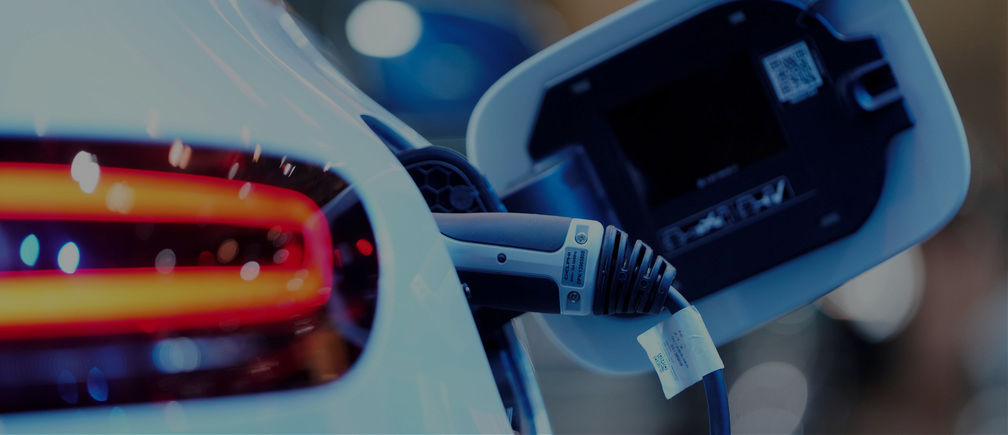
Why we can’t afford to fall behind in the EV race
CLIMATE CHANGE
EVs are best positioned to eliminate global warming emissions in the transportation sector -- the #1 source of U.S. greenhouse gas emissions.
According to the U.S. Government, climate change and extreme weather have cost the U.S. economy nearly $500B over the last 5 years, and that number is only expected to grow.
The transportation sector accounts for the largest portion of national GHG emissions , and EVs are currently the best technology on the market that can reduce our carbon footprint at the speed and scale necessary.
The Department of Energy estimates that EV carbon pollution is 60% lower than that of gasoline-powered cars. Even in a state like Wyoming, which gets 96% of its electricity from coal, EV carbon emissions are still 17% lower than gasoline-powered cars.
ECONOMY & JOBS
EVs provide stable and high-wage manufacturing jobs in the U.S that are “future-proof” as the global economy transitions to clean energy.
In 2018, EVs had their best year ever in the U.S., with over 350,000 units sold, and continue to show increased customer acceptance, reaching a 1% of the total U.S. new car market. .
The U.S. EV sector currently supports 250,000 American jobs . That number will only increase as auto manufacturers continue to develop and release new EV cars. More than 40 new EV models hit the streets in the next few years at all different price points.
The U.S. is at risk of falling behind overseas competitors such as China and Korea. Having recognized the market’s long-term potential, these governments and foreign manufacturers are working hand-in-hand to dominate global EV industry, leaving us at risk of ceding the profound benefits of a thriving EV industry to others.
The key technologies that enable EVs and the broader industry were originally developed by the United States. We must ensure that we continue to be a manufacturing leader of this industry so that American workers and consumers continue to benefit from our investments.
Growing the U.S. EV manufacturing supply chain will provide high-wage jobs into the future, if the U.S. continues to lead the market.
Energy diversity
EVs provide U.S. economic security by diversifying the nation’s automobile energy markets and decreasing dependence on volatile oil market.
EVs inoculate Americans from unstable and volatile international oil markets by utilizing domestically generated power for our vehicles.
Diversifying and reducing the need for oil will finally delink U.S. national security interests from the unstable oil producing regions of the world.
Achieving energy economic independence is vital to ensuring the stability of the U.S. economy and puts more dollars back into growing our domestic manufacturing and local economies.
AFFORDABILITY
EVs are affordable and easy to own.
EVs are already more affordable to operate than internal combustion engine vehicles and over their lifetime can have less total cost to consumers.
The next generation of EVs are quickly closing the gap on upfront costs and will have operational attributes similar to ICE vehicles (i.e. charge times and range).
EV Incentives work to close that upfront cost gap and put Americans in EVs in greater numbers as the auto industry develops new cost-effective supply chains.
According to the Union of Concerned Scientists, an EV driver could save nearly $13,000 on fuel costs and use 6,100 fewer gallons of gasoline over the life of the vehicle relative to today’s average compact gasoline car.
Today’s EV owners can charge at their home or office for the vast majority of their needs and tomorrow’s fast charging networks will allow easy and comfortable road trips like any traditional car.
Electric charging is equivalent to about $.60 cents per gallon of gas on average and electricity prices are less volatile then gasoline. An EV owner can be assured their car won’t suddenly become a burden on their wallets.
public health
Studies have shown that Low-income communities are disproportionately affected by preventable health risks associated with air pollution. The fastest and best ways to reduce pollution and improve public health is to rapidly increase the number of EVs on the road.
If Congress doesn’t reform the EV purchase tax credit the US market could falter

Latest News
STATEMENT ON INCLUSION OF DRIVING AMERICA FORWARD ACT BY HOUSE WAYS & MEANS COMMITTEE
19 November 2019
In response to the House Ways & Means Committee Democrats’ inclusion of H.R. 2256, Representative Dan Kildee’s Driving America Forward Act, in today’s clean energy technology package, the EV Drive Coalition’s Mike Carr released the following statement:
“Today’s announcement is a clear recognition by the House of Representatives and Chairman Neal of the widespread and diverse support for the Driving America Forward Act. We applaud the Chairman, Congressman Kildee and the Committee for their leadership to address the urgent issue of transportation emissions, which is the leading source of greenhouse gases in the United States.
Get the full statement →
How to reform the federal electric vehicle tax credit
Opinion: Congress must reform federal electric vehicle tax credit
In Case You Missed It – Electric Vehicles on the Rise in U.S.
“Electric Transportation is a win for our nation, helping to meet customer needs, providing environmental benefits, and supporting America’s energy security.”
Statement by Trevor Francis, EV Drive Coalition
27 November 2018
The federal consumer EV tax credit helped catalyze the EV market, boosting the manufacturing economy while increasing consumer demand and growing the deployment of an efficient alternative to traditional automobiles that helps to reduce greenhouse emissions while providing energy independence.
The current EV tax credit, which goes directly to consumers, creates an uneven playing field by establishing a cap on the number of consumers who can use the tax credit based on which manufacturer made the car. The U.S. EV market is at a critical crossroads as manufacturers begin to hit that cap; the EV tax credit should be reformed so all EV purchasers continue to receive the benefit of EV tax credits.
From our Twitter feed >>
-
The American Jobs Plan from @POTUS endorses policies critical to a flourishing, global-leading American #EV market—… https://t.co/fU8vb3pGKQ
-
RT @colinmckerrache: This is a very big deal for the U.S. electric vehicle market. Biden is proposing $174 billion in investment, cover… https://t.co/u9RNoYYT71
-
RT @zeta_2030: The #AmericanJobsPlan from @POTUS embraces #ZETA's policies to drive a swift and equitable transition to an #EV fut… https://t.co/Tys6nlVemB
-
RT @evgonetwork: More big EV news today, this time from the White House. Learn more about the Biden Administration's 8 year infrastr… https://t.co/ow05l3RDcS
-
Congratulations to Jigar and thanks for taking on this challenge. The President has set out a bold agenda for deplo… https://t.co/V2t1XD9n2S
-
INSIGHT: Congress Must Focus on Clean Energy for Fast, Enduring Economic Recovery https://t.co/Kj3DQnbtB1
